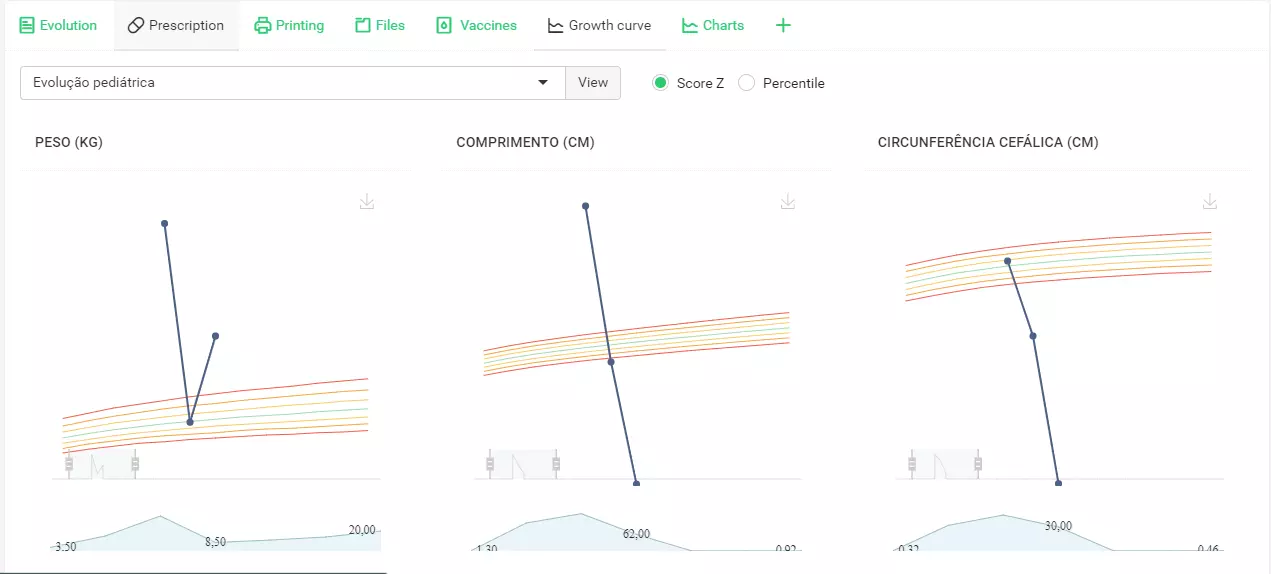When choosing software for the clinic, it's essential that the functionality can cover all areas, meeting the main needs of users. Thinking about it, the Ninsaúde Apolo production team has been working to bring more news every day, and the most recent one is on the health professional's attendance screen, more specifically for pediatricians: the growth curve.
In addition to this functionality, others are also of great importance in service, making it faster, more dynamic, and more effective. Check out some of the features of Ninsaúde Apolo that pediatricians most like to use.
1 - Growth curve
The growth curve is an international standard developed by the World Health Organization (WHO) and used to monitor the growth and nutritional status of children from its main measures.
With this new functionality in Ninsaúde Apolo, it is possible to follow the Score-Z and percentile, and for that, it is enough to fill the form with the child's weight, length, and head circumference.

Just a pause before we continue, did you know that the Ninsaúde Apolo clinic and office management system is perfect for health clinics? We always work with new improvements and discover exclusive advantages here.
2 - Custom forms
With the functionality of Ninsaúde Apolo forms, health professionals can create anamneses and insert them during evolution. Questions can include long or short text responses, date, numbers, multiple choice, calculated and double field, and yes / no responses.
With the calculated field, it is possible to insert a formula to generate a score or other calculations made by the system itself, such as the BMI for example.
Also, the Ninsaúde team offers some models of forms for various specialties, so the health professional can start using the system with materials ready for their care.
3 - Vaccine booklet
With this functionality, the health professional can generate a copy of the patient's vaccination card and will be able to insert future immunizations that he should make. Immunizations are already registered in the system with their names and age group, and after entering them you can also print them.

4 - Prescriptions and printing of documents
With the prescription tab, the health professional has access to a database of medicines from several laboratories that can be added to the prescription with a few clicks.
Before starting a prescription, it is possible to insert an allergy that the patient has to an active ingredient, class of medication, or other agents, causing the prescription to create an alert about the allergy.
Also, it is possible to save prescription templates for future use, and if it is necessary to prescribe a drug that you do not have in our databases, such as manipulated drugs or a specific type of food, you can use the Printing tab, where you can print all types of documents: recipes, certificates, exam requests, among others, which can also be saved as a template for later use.
5 - Registration of family ties and companions
When registering a patient it is possible to create a family bond with another that is already registered in the system. In clinics with various specialties, this functionality is useful because it helps health professionals to identify the degree of relationship among patients, especially when it comes to pediatricians.
Also, even at the reception, the secretary can add a companion to the schedule, who may not necessarily have a family bond, but rather the person who usually accompanies the child during appointments.

